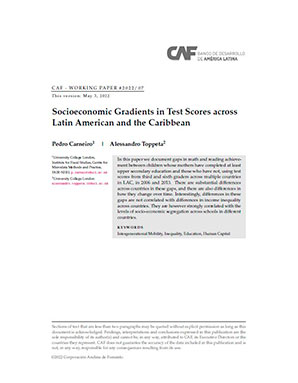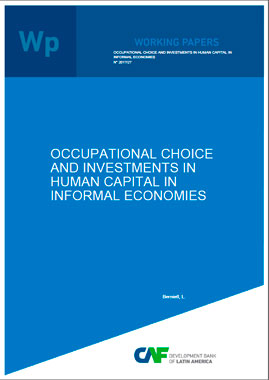Mostrar el registro sencillo del ítem
Bureaucratic turnover across levels of government
| dc.contributor.author | Brassiolo, Pablo | |
| dc.contributor.author | Estrada, Ricardo | |
| dc.contributor.author | Fajardo, Gustavo | |
| dc.coverage.spatial | América Latina y el Caribe | es_ES |
| dc.coverage.spatial | Brasil | es_ES |
| dc.date.accessioned | 2021-11-19T15:40:22Z | |
| dc.date.available | 2021-11-19T15:40:22Z | |
| dc.date.issued | 2021-11-19 | |
| dc.identifier.citation | Brassiolo, P., Estrada, R., & Fajardo, G. (2021, November 19). Bureaucratic turnover across levels of government. Caracas: CAF. Retrieved from https://scioteca.caf.com/handle/123456789/1824 | en_GB |
| dc.identifier.uri | https://scioteca.caf.com/handle/123456789/1824 | |
| dc.description.tableofcontents | The incidence of patronage can vary widely across levels of gov ernment within a country. We show this in the context of Brazil, which has been the focus of most recent research on patronage. In particular, we find that bureaucratic turnover follows politi cal cycles among municipal employees, but not among state or federal level employees. This is not driven by differences across levels of government in the composition of the workforce or in the labor regimes used. Thus, the most likely explanation is differences in institutional quality. That pattern of institutional development, with central instances of government more pro fessionalized that local ones, mirrors historical experiences of civil service reform. | es_ES |
| dc.language.iso | en | es_ES |
| dc.publisher | CAF | es_ES |
| dc.subject | Desarrollo institucional | es_ES |
| dc.subject | Economía | es_ES |
| dc.subject | Gobernabilidad | es_ES |
| dc.subject | Políticas públicas | es_ES |
| dc.subject | Sector público | es_ES |
| dc.title | Bureaucratic turnover across levels of government | es_ES |
| dc.type | workingPaper | es_ES |
| dc.publisher.city | Caracas | es_ES |
Ficheros en el ítem
Este ítem aparece en la(s) siguiente(s) colección(ones)
-
6.1 Documentos de trabajo en investigación socioeconómica
En esta colección se encuentran los documentos de trabajo sobre temas económicos y sociales prioritarios para la región.




